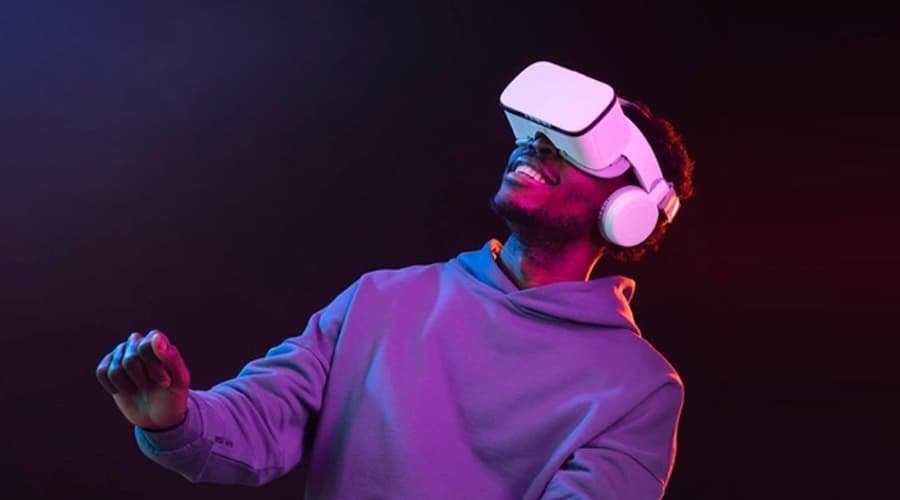
Consumers are becoming increasingly sophisticated, technologically savvy, and motivated to engage and interact with businesses that treat them as such. And those requirements and desires evolve in lockstep with technological advancements. As a result, brands that wish to remain competitive must invest in efficient, effective technology that enhances their connection to their market.
Augmented reality is one of the most significant technological trends in marketing, and experts predict that it will continue to grow at a rapid pace. Augmented reality marketing enables brands to provide their customers with unique, convenient, and intelligent experiences.
Let’s take a closer look at what augmented reality marketing is, what it means for your business, and how it fits into today’s retail and ecommerce environments.
Meaning of Augmented Reality Marketing?
To put it simply, augmented reality technology is use to embed and embody marketing content in a customer environment. Alternatively, it can serves as a marketing or sales strategy that enables brands to assist consumers in interacting with them, making more informed purchasing decisions, and minimizing returns.
The Major Benefits
Numerous proponents of augmented reality marketing believe it has the potential to boost sales, emphasize the value of brands, and create unique customer experiences. However, what are the benefits of this strategy and how are businesses implementing it?
Consider Trying Before You Buy
With augmented reality, the concept of trying on items takes on a new meaning. Shoppers can simulate a wide variety of products without requiring a company to maintain a large physical inventory.
Augmented Branding Materials
Augmented reality marketing enables the scanning, viewing, and virtual augmenting of branded materials in order to make typically static elements more dynamic. For instance, when a business card is scanned, augmented reality can be used to provide a variety of contact options, or a brochure can be used as a virtual gateway to highlight information conveyed via video.
Brand Awareness Through Augmented Reality Tactics
Additionally, indirect sales and marketing strategists can leverage augmented reality technology. By creating an enjoyable augmented reality experience, brands can generate much-needed buzz. For instance, Uber created an augmented reality campaign in Zurich that allowed riders to interact with the technology in a fun way, garnering over 1 million YouTube views. Other large brands, such as Pepsi, have also used augmented reality to create buzz through indirect marketing tactics.
Personalize Immersive, Interactive Experiences
Augmented reality marketing enables consumers to add a personal touch to online content. This can be through the use of customized apps and other provided materials. Consider the following scenario: you’re shopping in a supermarket. Consumers can screen which prices are on sale, which coupons are available, and which purchase combinations make sense using a smartphone augmented reality app.
Augmented reality marketing can assist marketers in generating value by creating a personalized content that is in line with the unique needs of each consumer.
Assist Customers in Making Purchase Decisions
Immersive, interactive augmented reality can assist marketers in measuring engagement. Typically, brands that employ cutting-edge technology that surprises and delights shoppers become their first choice.
The future of augmented reality marketing appears to be promising. Particularly when combined with other emerging technologies such as machine learning and the Internet of Things (IoT).
The gaming and entertainment industries are not the only industries that benefit from augmented reality. It provides practical, measurable solutions to assist in driving sales and developing marketing innovations. Additionally, it can assist forward-thinking retailers and brands in providing consumers with customized experiences that drive growth.